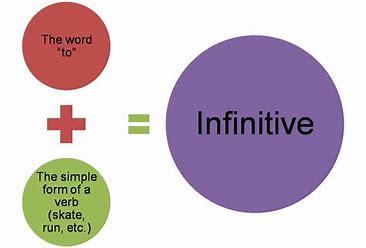非谓语动词是指在句子中不是谓语的动词。主要包括:
- 不定式-Infinitive
- 动名词-Gerund
- 分词-Participle
非谓语动词除了不能独立作谓语外,可以承担句子的其他成分。


第一部分:不定式
- 表现形式:(to) do
- 否定形式:not (to) do
作名词的用法:
- To teach is to learn.教书就是学习。(作主语)
- I like to teach. 我乐于教书。(作宾语)
- To teach is to learn.教书就是学习。(作补语)
注意:当不定式作主语,或作使役动词- Factitive Verb(如:leave,get,keep,make,let,help,have)等的宾语时,常用it作形式主语或形式宾语,而把不定是放在后面。
- It is never too late to mend.(作主语)
- I make it a rule to go out every day.(作宾语)
此外:在作名词的不定式前出现what,how,where等疑问词时,可把它们看作名词短语。
例如:
- He did not know how to swim.(=the way to swim)
- I wish I know where to go.(=the place for going)
- She scarcely knows what to do.(=what she ought to do)

作形容词的用法:
- I have no friend to help me.我没有可以帮助我的朋友。
- He has no food to eat. 他没有可以吃的食物。
注意:省略了关系代词的时候,介词就要一道不定式的后面。
例如:
- We need a house to live in.(=in which to live)
- He had no money to buy food with.(with which to buy food.)
3.完成式:不定式的完成式表示的动作发生在谓语动词动作之前
例如:
- I happened to have seen the film. 我偶然看过这部电影。
- He is pleased to have met his friend. 他很高兴能遇上他的朋友。

作副词的用法:
①表目的:
- He worked day and night to get the money. 他夜以继日地工作来赚钱。
- She sold her hair to buy the watch chain. 她卖掉了自己的头发来买那条表链。
注意:不定式放句首时,逻辑主语与句子主语要一致
- ×:To save money,every means has been tried.
- √:To save money,he has tried every means. 为了省钱,他使出了浑身解数。
- ×:To learn English well,a dictionary is needed.
- √:To learn English well,he needs a dictionary. 为了学好英语,他需要一本词典。
②表结果(往往是与预期愿望相反的结果 意料之外):常放在never only后
- He arrived late only to find the train had gone. 他来晚了,只见火车已经走了。
- I visited him only to find him out. 我去拜访他,只见他出去了。
③表原因:常放在形容词后面
- They were very sad to hear the news. 他们听到这条新闻非常伤心。
④表程度:
- He is old enough to go to school.
- The question is simple for him to answer.

独立的不定式:与句中其他的词毫无语法关系,完全处于独立地位,用于修饰全句。
最好背下来- To tell the truth,I do not like him.说实话,我不喜欢他。
- He is, so to speak, a book-worm.他可以说是个书呆子。
- To be frank with you, you are a man of weak will.坦率地说,你是个意志薄弱的人。
- To do him justice,he is not without some merits.说句公道话,他并非一无是处。
- He fell nearly 100 feet; but, strange to say, the fall did not kill him.他跌了将近100英尺;但是,奇怪的是,他并没有摔死。
- To make the matters worse, thick sleet was driving across the sea.更糟的是,厚厚的雨夹雪正飘过海面。
- He knows German and French,not to mention English.他懂德语和法语,更不用说英语了。

不定式的6种时态:
- to do
- to be doing
- to be done
- to have done
- to have been doing
- to have been done
for Object Infinitive
- For him to fail to come would be fatal to our plan.(作名词)他不来对我们的计划是致命的。
- It was an easy thing for Lord Byron to be a great poet.(作名词)拜伦勋爵成为一位伟大的诗人是一件容易的事。
- She held the baby up for them to see.(作副词)她把孩子举起来让他们看。
- It is time for us to be up and doing.(作形容词)我们该起床做事了。
需要敲黑板的内容
可以省略to的不定式用法:
在动词see,hear,feel,make,let,have,observe,watch,notice,please等之后,省略to
例如:
- I never saw anyone cry for joy before.
- I feel the cold air strike against my face.
- I made him come and sit beside me.
- I will have him come soon.
- I let him go back to his own house.
- Please have a seat.
在had better,had best,had rather,would rather,could not but feel,do nothing but后习惯把to省略
例如:
,
- I had better not work after you have tired yourself.
- It's nearly one,and we had best get a few hours' sleep.
- I had rather be a doorkeeper in the house of Lord,than dwell in the tents of wickedness.
- I would rather walk than run.
- I could not but feel sorry for what you had said.
- He does nothing but study.





